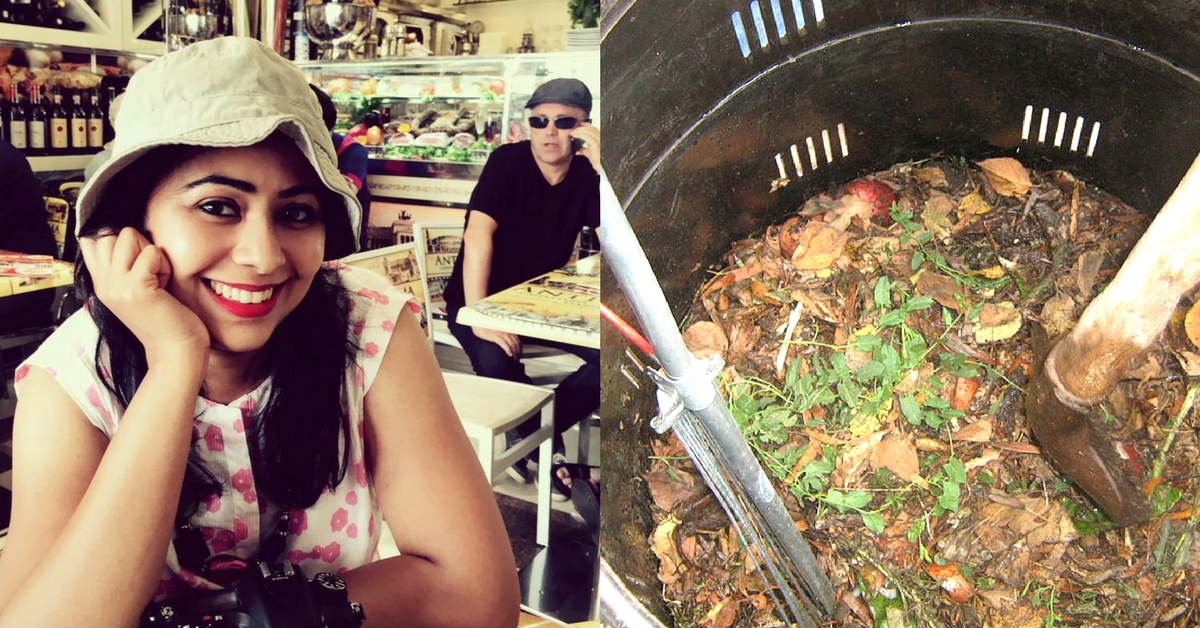We Can All Learn From This Delhi Family of Six That Produces Hardly Any Waste!
The eco-friendly family also uses homemade concoctions to clean floors and toilet pots!

Where the civic authorities are trying to figure out a solution for the city’s overflowing garbage, a family in East Delhi’s crowded Pushpanjali has found a fix.
Priyanka Dev, a housewife was inspired by a friend who was composting garbage and making “black gold”. She uses this compost in her kitchen garden.
Dev started dividing household waste into two bins from June 2016–one for wet organic waste and the other, for dry waste. It took some effort and diligent supervision in the first month, but soon, it became a habit. Maids had to be taught about the change and children had to be led by example. Even the adults had to be reminded for a while.
Most of the family’s waste consisted of kitchen and horticultural waste, which figured between 70-80% of their total waste; dry plastic, wrappings and boxes contributed some 20-30%, and 2-3% is hazardous waste like sanitary napkins.
Priyanka asserts that zero waste is a myth. However, she says the amount of waste we send to landfill sites should be minimised.

Batteries, tube lights, bulbs and other such e-waste is collected and kept in a cardboard box at the community centre, as it is not generated in bulk. The ideal practice, for sanitary napkins, she says is “to wrap them in newspapers and mark them with a red circle,” so that those picking up the waste are warned against touching them.
You may also like: How Responsible Citizens Can Help Villages with Waste Management
Priyanka affectionately remarks how the kids have become ambassadors of the project. Her son, Aryaman, 10, was worried about where to discard the stem of an apple, a few days ago. Her daughter, Avni, no longer accepts plastic bags.
Her maid, Kamlesh hails from Chattisgarh and reminisces how kitchen waste was dumped in a pit in their village. By the time the monsoons came, the manure would be ready for the field. She states that khambas seem like a functional solution for cities where finding space for digging a pit would prove difficult.
She neatly collects all kitchen waste after lunch and puts it on the topmost pot of the khamba and churns it with a layer of coconut husk, which prevents the waste from smelling. The waste only starts to smell if it is rotten.
Dev uses three pots for her family of six, which cost Rs 2,800 but says that khambas are available in various sizes and materials.
They have stopped using harmful detergents and floor cleaners too now and switched to more nature-friendly options. She makes a concoction from orange peels and jaggery to clean floors and vinegar with baking soda to clean toilet pots.
We have many laws drafted to protect our environment on paper, but none of these will be of any use if we don’t put them into practice and mend our ways.
(Edited by Shruti Singhal)
Like this story? Or have something to share? Write to us: [email protected], or connect with us on Facebook and Twitter.
NEW: Click here to get positive news on WhatsApp!
If you found our stories insightful, informative, or even just enjoyable, we invite you to consider making a voluntary payment to support the work we do at The Better India. Your contribution helps us continue producing quality content that educates, inspires, and drives positive change.
Choose one of the payment options below for your contribution-
By paying for the stories you value, you directly contribute to sustaining our efforts focused on making a difference in the world. Together, let’s ensure that impactful stories continue to be told and shared, enriching lives and communities alike.
Thank you for your support. Here are some frequently asked questions you might find helpful to know why you are contributing?


This story made me
-
97
-
121
-
89
-
167













